Citicoline is gaining traction as a nootropic or natural focus enhancer. When taken as a supplement, citicoline has a number of benefits. This includes stimulating the production of phospholipids which are vital for energy production and brain health. Read on to find out why we added this compound as an ingredient in our Seneca Nootropic Complex.
Table of Contents
What is Citicoline?
Citicoline is probably most famous as a nootropic. It’s a mixture of choline and cytidine. When taken as a supplement, it’s quickly broken down into these 2 molecules in the gut.
Choline and cytidine can then go through a number of biochemical changes in a cycle known as the ‘Kennedy Cycle’ (see image below). It will then end up as a phospholipid or as the neurotransmitter, Acetylcholine.
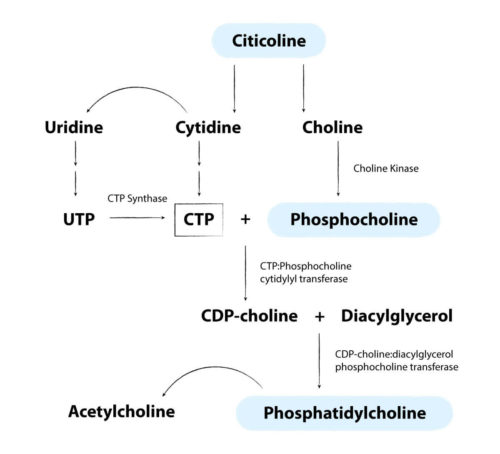
What are examples of Citicoline’s health benefits?
Benefit #1 – Citicoline helps protect your brain
When choline levels become low, the brain prioritizes acetylcholine production. It does this by sacrificing the phospholipids in the brain. This means we can still move, which is the most vital thing for life. But if it goes on for too long, this process can end up with neurons eventually dying. This is because the body uses choline in the phospholipids in cell membranes to produce acetylcholine. It’s actually a process that has been described as ‘autocannibalism’ (1).
However, citicoline can increase brain choline levels and stimulate acetylcholine synthesis. This can spare phospholipids and prevent the death of neurons (2, 3).
Benefit #2 – It may help repair neurons
A study by Rao et al. published in the journal Stroke used a stroke model in gerbils (4). They found that citicoline was able to significantly increase brain phospholipid levels and reduce brain phospholipase activity.
More importantly, studies have also been done on human stroke patients.
Human study 1
For example, one study looked at 272 stroke patients who had suffered a moderate to severe stroke. The researchers gave half the patients 1000mg of citicoline a day and the other half a placebo. They found that conscious awareness improved significantly in the citicoline group (2).
Human study 2
Another study was conducted by the Citicoline Stroke Study Group on 259 stroke patients (5). The patients were split into 4 groups of 65 patients each. They were treated with either 500mg, 1000mg, 2000mg of citicoline, or a placebo.
All the patients received their citicoline or the placebo within 24 hours of suffering a stroke. Treatment went on for 6 weeks. After the said period, the patients in the 500mg and 2000mg groups had twice the chance of recovering from their strokes vs the placebo group.
Researchers also found a higher level of dizziness in the 2000mg group. They concluded that the best citicoline dosage for stroke patients was 500mg per day.
The one caveat with this study is that there was no difference between the 1000mg group and the placebo group, and the researchers couldn’t find a reason for this.
Benefit #3 – Citicoline may slow down cognitive decline
A number of studies have shown that citicoline has the potential to slow down the cognitive decline that seems almost inevitable as we age. For example, one study that used brain scans found that the subjects who took citicoline had increased brain phospholipid levels. They also had a 14% increase in brain ATP levels (6).
A further study on 95 subjects aged 50-85 years old found that citicoline helped improved the subjects’ memory on delayed recall memory tests. These types of tests help diagnose dementia (7).
Benefit #4 – Dopamine release
Citicoline also helped stimulate tyrosine hydroxylase activity which leads to increased dopamine release. Dopamine is the neurotransmitter associated with attention and motivation (8).
Benefit #5 – Cognitive function and ADHD
A 2015 study on healthy adolescent males used several different tests to judge cognitive function. Tests included the finger tap test which measures how quickly subjects can tap a button. Other tests measured attention, focus, and impulsivity. Increased impulsivity is often associated with ADHD.
The researchers gave the participants either 250mg or 500mg of citicoline and then followed them for 28 days. At the end of the 28-day period, they found that the subjects who had supplemented with citicoline scored significantly higher in the cognitive speed test (i.e finger tap), and the attention and focus tests. They also scored lower on the impulsivity test, indicating less impulsivity (9).
Benefit #6 – Supports neuronal growth
Human studies with citicoline have so far focused on stroke patients. On the other hand, animal studies have looked at whether the breakdown components of citicoline, choline, cytidine, and uridine can promote the growth of neuronal dendrites and increase neuronal synapses. Dendrites are branch-like structures that grow from the ends of neurons that connect with other neurons through synapses.
Several studies have combined cytidine, uridine, and choline with the omega-3 fatty acid DHA. They have found that together they increase brain synapses, dendritic spines, and membrane-rich phospholipids (10, 11, 12).
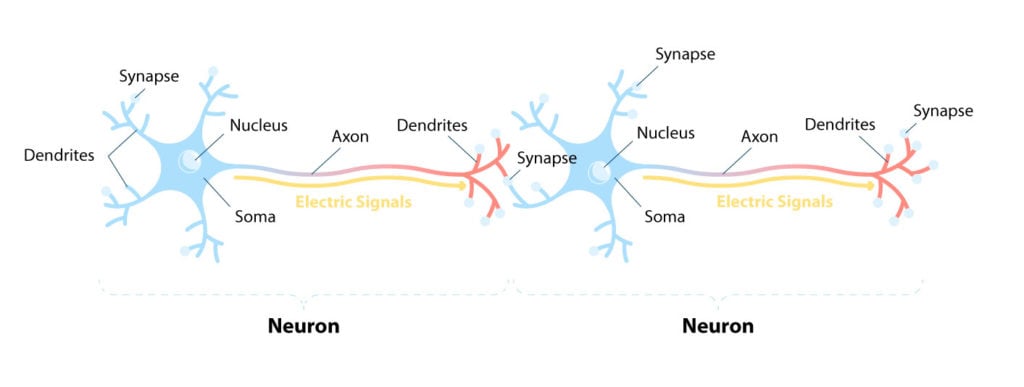
What’s the right Citicoline dosage? Any side effects?
There is currently no official Citicoline dosage. In the studies we quoted above, dosages varied from 250mg to 2000mg per day. Even at relatively higher doses, citicoline side effects seem to be a non-issue. Studies show it’s a non-toxic and well-tolerated compound (13).
Want to try this Citicoline, Uridine, and DHA stack?
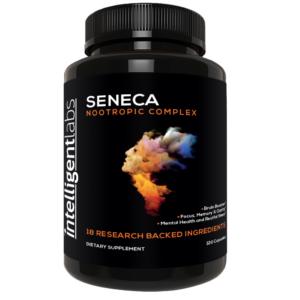
If trying the combination of Citicoline, DHA, and Uridine sounds interesting to you, we recommend trying our Seneca Nootropic Complex. This product contains both uridine monophosphate (150mg per serving) and citicoline (250mg per serving) along with 16 other proven nootropics.
Then, we would suggest combining Seneca with our Ultra Pure Omega 3. It contains 816mg of DHA per 3-capsule serving (along with 1224mg of EPA).
If you want to know more about nootropics, check out this article on “What Are Nootropics?”
What exactly does Citicoline do in the brain?
Although cytidine doesn’t easily pass the blood-brain barrier, it can be turned into uridine. Uridine can cross into the brain and combines with choline in the brain to produce phosphatidylcholine (14).
From here, the body can transform phosphatidylcholine into all the other main phospholipids that make up the membranes of all of our 20 trillion cells. The phospholipids also make up the membranes of all of our cell organelles.
Cell organelles can be thought of as the organs of our cells and support their functioning, just like organs in our bodies. Cell organelles include structures like the Endoplasmic Reticulum, the Golgi apparatus, and the Mitochondria.
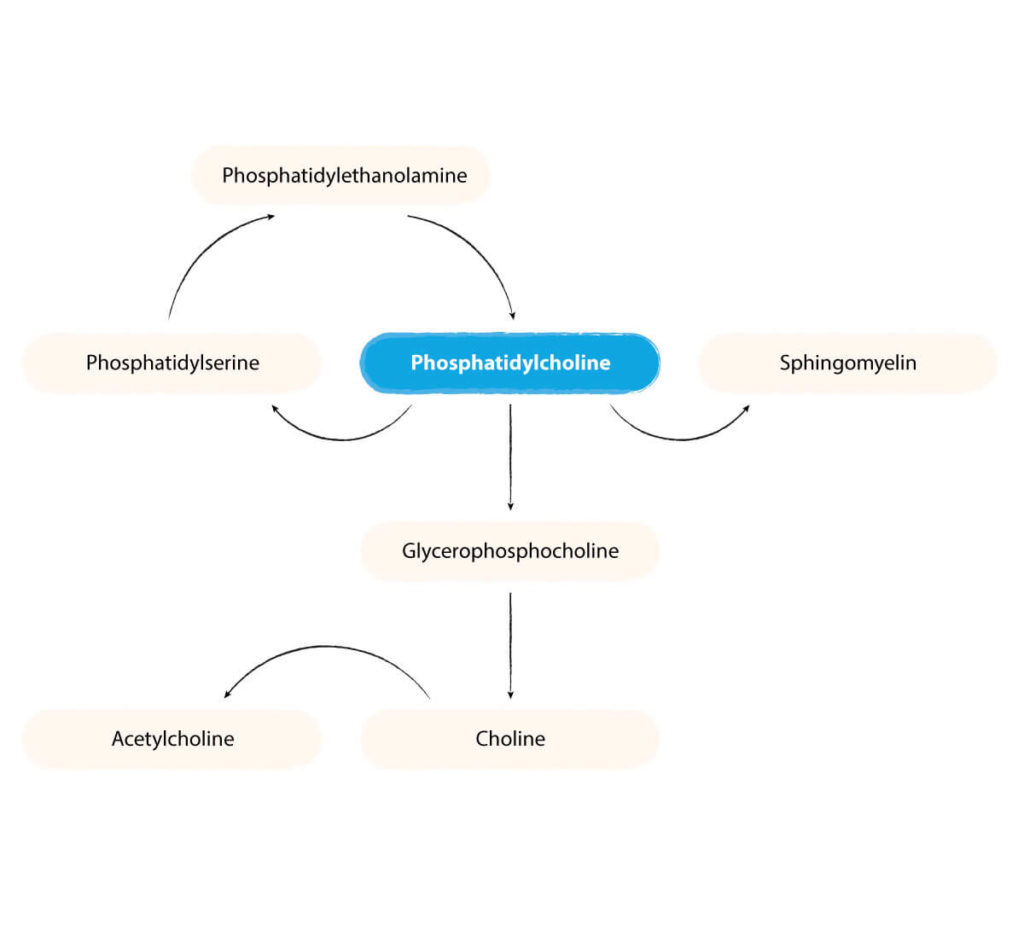
Phosphatidylcholine and sphingomyelin make up the outer layer of the membranes. Whereas phosphatidylserine and phosphatidylethanolamine make up the inner layer as shown in the image below. Cholesterol helps stabilize both sides.
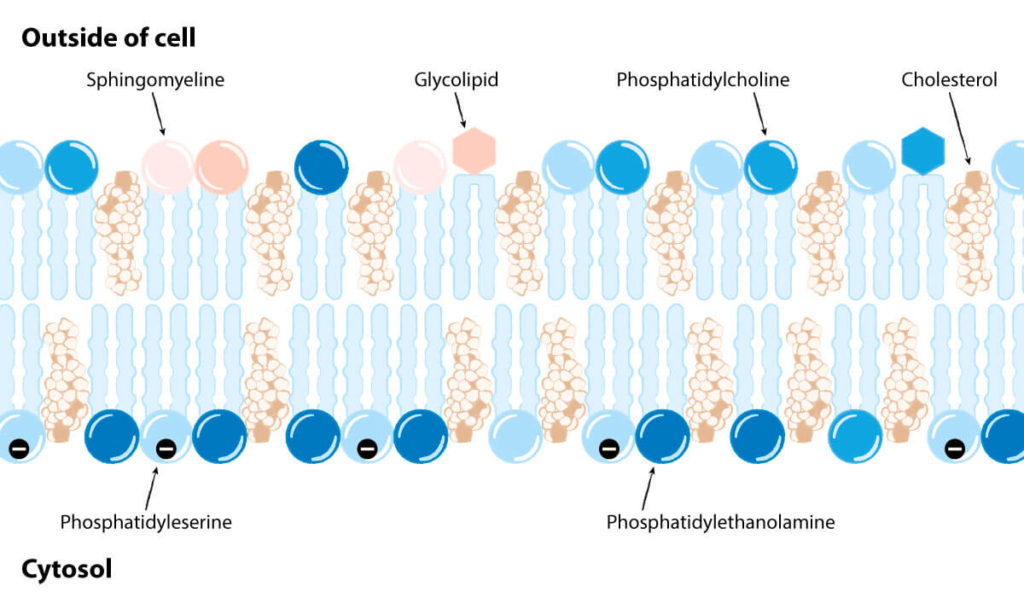
The mitochondria produce energy, but in order to do so, they need both outer and inner membranes to be healthy. The inner membrane allows mitochondria to pump hydrogen ions through an enzyme called ATP synthase, which acts as a turbine. The whole process is somewhat similar to a hydroelectric dam.
Every time your brain sends a signal to a muscle to make it move, it uses acetylcholine to transmit the signal from the nerve to the muscle. Acetylcholine is also key in the brain to stimulate memory, focus, and learning.
How does Citicoline help with DNA, RNA, and antioxidant production?
Once broken down, citicoline helps to produce RNA and DNA. It also gets converted into Betaine, which is vital for the methylation cycle. A series of reactions later, it ends up as cysteine. Cysteine contains the sulfur group vital for producing glutathione, the body’s main antioxidant (2).
Final thoughts
As you’ve learned in this article, citicoline has a lot of health benefits, specifically in supporting mental and cognitive health. It may even help improve the symptoms of stroke patients and lower the impulsivity of ADHD patients. Future studies may continue to discover even more of citicoline’s health benefits, so they’re certainly something to look forward to!




